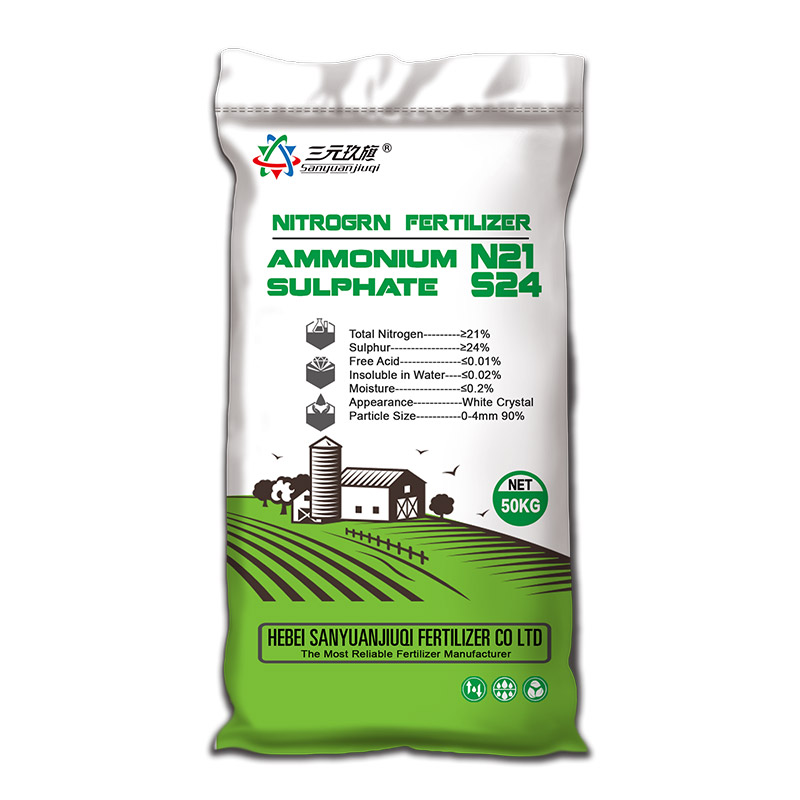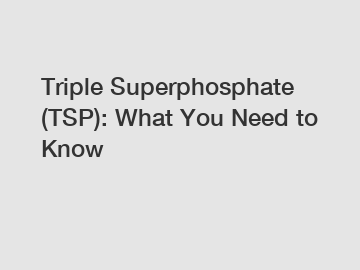What is ammonium sulfate fertilizer good for?
Ammonium sulfate fertilizer, often referred to as ammonium sulphate, is a nitrogen-rich fertilizer that provides essential nutrients to plants for healthy growth and development. It contains both nitrogen and sulfur, two vital elements necessary for various physiological processes within plants. Here are some of the benefits and uses of ammonium sulfate fertilizer:
Nitrogen Source: Ammonium sulfate is a valuable source of nitrogen, an essential element required by plants for the formation of proteins, enzymes, and chlorophyll. Nitrogen is a fundamental building block for plant tissues and plays a crucial role in promoting vigorous vegetative growth. The presence of nitrogen in ammonium sulfate supports lush foliage, increased leaf area, and overall plant vigor.
Acidifying Soil: One unique characteristic of ammonium sulfate is its ability to acidify the soil. As plants take up ammonium ions from the fertilizer, they release hydrogen ions into the soil, which reduces soil pH. This can be advantageous for plants that thrive in slightly acidic soil conditions, such as blueberries, azaleas, and rhododendrons.
Sulfur Source: Sulfur is another essential nutrient that ammonium sulfate provides. Sulfur is involved in various biochemical processes, including the synthesis of amino acids, vitamins, and enzymes. It contributes to the overall quality of crops by enhancing flavor, color, and nutrient content. Sulfur deficiency can lead to reduced plant growth and poor crop quality.

Improves Nitrogen Uptake: Ammonium sulfate fertilizer contains both ammonium and sulfate ions, which can improve the uptake of other nutrients in the soil, such as calcium, magnesium, and micronutrients. This is due to the presence of the sulfate ions that form insoluble compounds with certain soil minerals, making them more available for plant uptake.
Quick-Release Nitrogen: Ammonium sulfate is a quick-release nitrogen fertilizer, meaning that the nitrogen it contains is readily available for plant uptake shortly after application. This characteristic makes it useful for addressing nitrogen deficiencies and promoting rapid growth, especially during critical growth stages.
Additional reading:Are Walnuts The Healthiest Nut?
Unraveling the Mystery: Why Do We Soak Walnuts Overnight?
Cultivating Success: The Advantages of Commercial Greenhouses
Companion Planting with Vegetable Seeds: Tips for a Pest-Free Garden
What are the benefits of NPK blended fertilizer?
Plastic Seedling Trays: A Sustainable Solution for Growing Green
High Tunnel Vs. Greenhouse: Which Is Right For You?
Diverse Crop Applications: Ammonium sulfate can be used on a wide range of crops, including field crops, vegetables, fruits, and ornamental plants. Its versatile application is well-suited for various agricultural systems, from conventional to organic farming.
Compatibility with Other Fertilizers: Ammonium sulfate can be combined with other fertilizers to create custom nutrient blends tailored to specific crop requirements. Its compatibility with many fertilizers makes it a valuable component in nutrient management strategies.
Reducing Nutrient Runoff: The sulfate component of ammonium sulfate can contribute to reducing nutrient runoff and leaching. Sulfate ions can bind with excess cations in the soil, preventing them from being washed away by water. This can aid in minimizing environmental pollution and nutrient loss.
In summary, ammonium sulfate fertilizer is a valuable resource for providing readily available nitrogen and sulfur to plants, promoting robust growth and healthy development. Its ability to acidify soil, enhance nutrient uptake, and serve as a versatile fertilizer option for various crops makes it a popular choice among farmers and gardeners. However, it's important to use ammonium sulfate in accordance with recommended application rates and guidelines to avoid over-fertilization and potential negative impacts on soil and plant health.
What is the highest yielding tomato seed?
What are the two types of vegetable seeds?
The Ultimate Guide to Sourcing High Strength Fiber
What is the ratio of monoammonium phosphate fertilizer?
How can Animal Husbandry Apparatus cost be optimized for maximum ROI in the purchase stage?
Best ways to customize patio furniture covers?
Where to Source Quality Thickener Agent for Food Products
Previous: How Do You Size Air Inlet Louvers?
Next: Unraveling the Mystery: Why Do We Soak Walnuts Overnight?
Related Articles
If you are interested in sending in a Guest Blogger Submission,welcome to write for us!












Comments
0